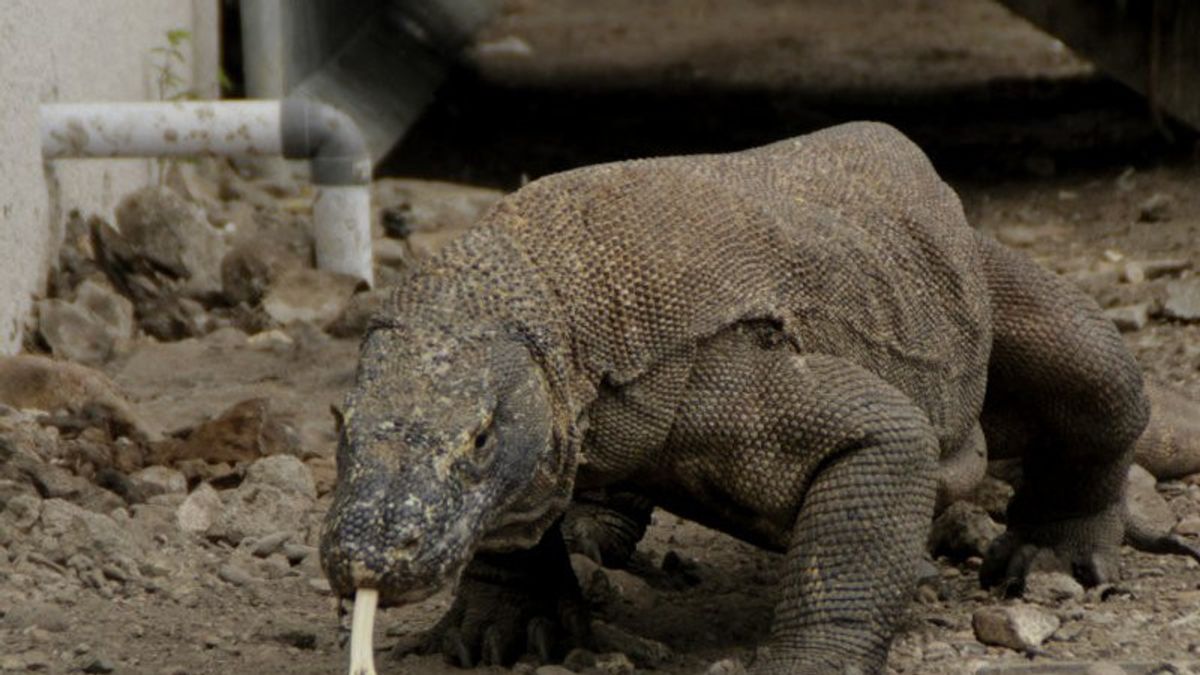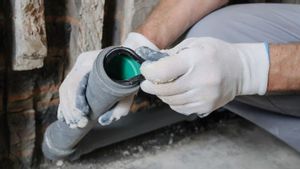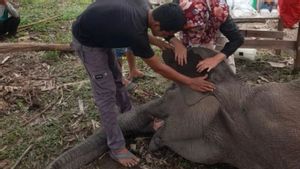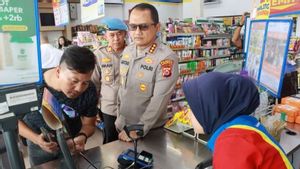JAKARTA - The Komodo dragon population has tended to increase in recent years and in 2019 the number was recorded to reach 3,022 individuals according to the Ministry of Environment and Forestry (KLHK).
According to a press release from the Ministry of Environment and Forestry in Jakarta, the total number of Komodo dragons, which in 2018 was 2,897, increased by 125 to 3,022 individuals in 2019.
The Komodo dragon population is concentrated on Komodo Island and Rinca Island, East Nusa Tenggara. The number of Komodo dragons in Nusa Kode Island, Gili Motang, and Padar Island, respectively, is only seven, 69 and 91 individuals.
"The population of dragons in the Loh Buaya Valley is five percent of the population on Rinca Island or around 66 individuals. Even the population of dragons in the Loh Buaya Valley for the last 17 years has been relatively stable with a slight trend of increasing in the last five years," said the Director General of Natural Resources Conservation. and the KLHK Wiratno Ecosystem, reported by Antara, Wednesday, October 28.
Loh Buaya on Rinca Island which is still in the Komodo National Park area in East Nusa Tenggara (NTT) and is one of the locations for tourist visits. The area is equipped with tourist huts, cafeterias, shelters and walking trails, and among other things is a place for wildlife viewing and exploration.
Wiratno said that when protection measures were carried out by minimizing contact between animals and humans, tourism activities proved not to endanger the Komodo dragon population in the Loh Buaya Valley area, which covers 500 hectares or about 2.5 percent of the area of Rinca Island which reaches 20,000 hectares.
Komodo National Park (TNK), which has been designated as a Biosphere Reserve (1977) and World Heritage (1991) by UNESCO, covers 173,300 hectares and covers 33.76 percent of land and 66.24 percent of water.
Of this area, 824 hectares or 0.4 percent are designated as Land Tourism Use Zones and 1,584 hectares (0.95 percent) are designated as Maritime Tourism Use Zones.
"So the development of natural tourism is very limited, only in the Use Zone. This is the precautionary principle that has been established since the planning of the management space in KNP," said Wiratno.
The government builds facilities and infrastructure to support tourism activities in the area. The arrangement of supporting facilities and infrastructure for tourism in the Loh Buaya Valley, Rinca Island has reached 30 percent and is targeted for completion in June 2021.
The development and arrangement of tourism-supporting facilities and infrastructure were in the spotlight after the circulation of photos showing the Komodo dragon being faced with a material transporting truck.
The Executive Director of Walhi NTT Umbu Wulang Tanaamahu Paranggi said that the government should focus more on efforts to conserve ecosystems and dragons rather than building infrastructure for tourism purposes that can cause ecosystem damage.
The English, Chinese, Japanese, Arabic, and French versions are automatically generated by the AI. So there may still be inaccuracies in translating, please always see Indonesian as our main language. (system supported by DigitalSiber.id)













